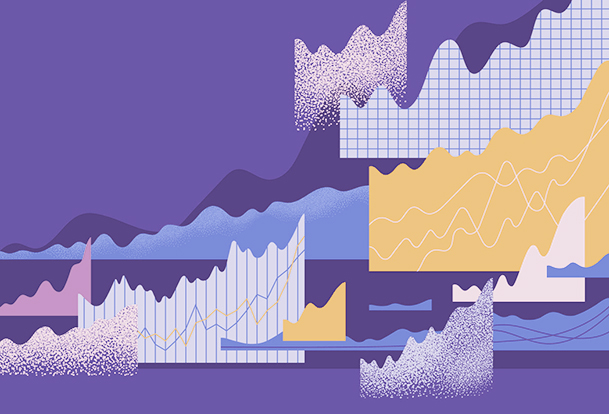Navigating Accounts & Investments
Published on May 3, 2019
minute read
Share:
Once you have a clear picture of your goals and understand what type of investor you are, you can explore the account (or accounts) and investment products that are available to you.
Types of Accounts
You can save for your short- and long-term goals using one account or a combination of registered and non-registered accounts. Registered investment accounts are typically used to defer taxes on your income and capital gains. Non-registered accounts don't come with the same tax-deferral benefits, so income generated is subject to tax each year. They do offer more flexibility than registered accounts and there are no contribution limits.
Registered Account Choices
RRSP - A Registered Retirement Savings Plan (RRSP) is a personal savings plan that lets you save for your retirement on a tax-deferred basis.
Spousal RRSPs - A spousal RRSP is a retirement savings plan that allows one spouse to own the account and the other to contribute to the account. The main objective of a spousal RRSP is to shift retirement income from the higher-income spouse to the lower-income spouse.
TFSA - A Tax-Free Savings Account (TFSA) is an investment account that can help you save while sheltering your investment earnings and withdrawals from tax.
RRIF - A Registered Retirement Income Fund (RRIF) is an extension of your RRSP. Your RRSP is designed to save for retirement, while your RRIF is used to withdraw your money throughout retirement.
RESP - A Registered Education Savings Plan (RESP) is a savings plan specifically designed to help you save for a child's education after high school.
FHSA – A First Home Savings Account (FHSA) is a registered plan that is designed to help Canadians contribute up to $40,000 on a tax-free basis to use towards the purchase of their first home.
Non-Registered Account Choices
Cash Account - Non-registered investment cash accounts can be used to save for shorter-term goals, or to supplement a longer-term goal like retirement. These accounts can be individually or jointly held.
Margin Accounts - Margin accounts allow you to borrow money against the investments in your account.
Non-Personal Accounts - These types of accounts can include ones that allow you to invest on behalf of a business or organization, as well as trust and estate accounts.
Investment products
Depending on your goals, time horizon and risk tolerance, there are a number of investment products available to you.
Here's a quick overview:
- Stocks give you part ownership in a company, provide the greatest potential for long-term growth and protection against inflation.
- Fixed-income products, such as bonds, GICs and treasury bills, can generate cash flow and provide stability to help protect your portfolio from volatility.
- Mutual Funds are baskets of investments that can include stocks, bonds, cash and other securities. They provide a simplified way to achieve diversification.
- Exchange-traded funds (ETFs), like mutual funds, can hold a variety of investment products, but like stocks, are easy to buy and sell since they trade on major stock exchanges throughout the day.
Alternative Investments
Canadian investors are increasingly looking to alternative investment strategies to help reduce risk by hedging their investments, to increase portfolio diversification or simply to speculate.
Here are a few alternative investment products available to you:
Options
Options are securities whose value is tied to an underlying asset or a group of assets. Because they derive their value from something else, options are called derivatives. Most often, the underlying assets are stocks, but other assets can include bonds, currencies, interest rates, market indices, ETFs or futures contracts.
Structured products
A structured product, also known as a market-linked investment, is a pre-packaged investment based on an underlying reference asset or benchmark, such as a single security, a basket of securities, options, indices, commodities, bonds or foreign currencies. Basically, a structured product is an investment with a fixed term whose payout depends on the performance of something else. There are two main types, structured deposits (based on bank savings accounts) and structured investments or notes.
RBC Direct Investing Inc. and Royal Bank of Canada are separate corporate entities which are affiliated. RBC Direct Investing Inc. is a wholly owned subsidiary of Royal Bank of Canada and is a Member of the Investment Industry Regulatory Organization of Canada and the Canadian Investor Protection Fund. Royal Bank of Canada and certain of its issuers are related to RBC Direct Investing Inc. RBC Direct Investing Inc. does not provide investment advice or recommendations regarding the purchase or sale of any securities. Investors are responsible for their own investment decisions. RBC Direct Investing is a business name used by RBC Direct Investing Inc. ® / ™ Trademark(s) of Royal Bank of Canada. RBC and Royal Bank are registered trademarks of Royal Bank of Canada. Used under licence.
© Royal Bank of Canada 2023.
There may be commissions, trailing commissions, investment fund management fees and expenses associated with investment fund and exchange-traded fund (ETF) investments. On or after June 1, 2022, any trailing commissions paid to RBC Direct Investing Inc. will be rebated to clients pursuant to applicable regulatory exemptions. Before investing, please review the applicable fees, expenses and charges relating to the fund as disclosed in the prospectus, fund facts or ETF facts for the fund. Mutual funds are not guaranteed, their values change frequently and past performance may not be repeated. For money market funds there can be no assurances that the fund will be able to maintain its net asset value per security at a constant amount or that the full amount of your investment in the fund will be returned to you.
Any information, opinions or views provided in this document, including hyperlinks to the RBC Direct Investing Inc. website or the websites of its affiliates or third parties, are for your general information only, and are not intended to provide legal, investment, financial, accounting, tax or other professional advice. While information presented is believed to be factual and current, its accuracy is not guaranteed and it should not be regarded as a complete analysis of the subjects discussed. All expressions of opinion reflect the judgment of the author(s) as of the date of publication and are subject to change. No endorsement of any third parties or their advice, opinions, information, products or services is expressly given or implied by RBC Direct Investing Inc. or its affiliates. You should consult with your advisor before taking any action based upon the information contained in this document.
Furthermore, the products, services and securities referred to in this publication are only available in Canada and other jurisdictions where they may be legally offered for sale. If you are not currently a resident of Canada, you should not access the information available on the RBC Direct Investing Inc. website.
Inspired Investor brings you personal stories, timely information and expert insights to empower your investment decisions. Visit About Us to find out more.










